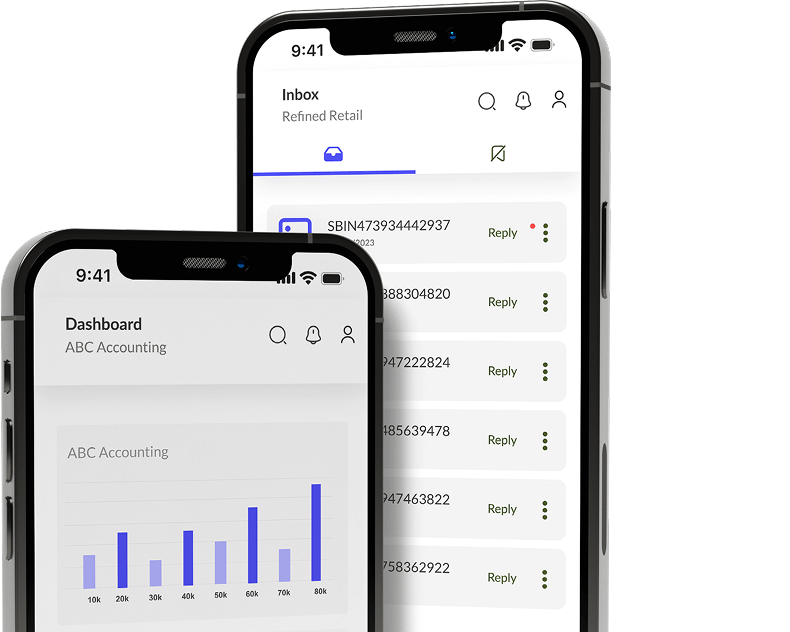If your accounting data exists in just one place, it's not safe; it's vulnerable.
Let’s be real. Most business owners and even some seasoned professionals assume that if their data shows up when they open their accounting software, everything's fine. But here’s the thing: data being “visible” is not the same as data being “backed up”.
Software crashes. Systems fail. People make mistakes. And when they do, the only thing standing between a “minor issue” and a “business disruption” is your last backup.
But isn’t everything saved in the cloud now?
Not always. And not the way you think.
A lot of people confuse “saving” with “backing up.”
When you hit "save" in your software, the data is stored, usually in a live environment. But if something corrupts that live data (a sync error, a deletion, a glitch), you're not protected unless there's a separate copy saved elsewhere.
Cloud software doesn’t always come with automatic backups, version history, or rollback features unless you’ve configured it that way. And in older desktop software (like Tally), backups are often manual, done through exported .TBK files, and are easily forgotten.
What exactly is getting backed up?
This isn’t just about one spreadsheet or a few transactions. A modern accounting system holds:
Years of invoices and receipts
Complete GST return data (GSTR-1, 3B, 2A, etc.)
Bank reconciliation status
Vendor/client master data
Uploaded PDFs, images, and purchase orders
User access logs and audit trails
Balance sheets, P&L reports, and historical snapshots
If you lose this, you’re not just looking at a tech issue, you’re looking at an operational, legal, and financial problem.
What can actually go wrong?
Here’s where it gets real.
Imagine:
It’s March 30, and your Tally crashes, wiping clean your Q4 entries.
Your laptop with all your saved bills gets stolen while you’re on the road.
A junior team member accidentally deletes 100 entries while cleaning up duplicates.
A ransomware attack locks your files behind a payment demand.
Or your cloud service goes down — permanently — and you can’t retrieve your last year’s GST files during an audit.
In each of these cases, a good backup system turns a disaster into a delay. Without it, you’re stuck.
The actual numbers are worse than you think
This isn't a theory. Here’s what the sourced data says:
94% of companies suffering major data loss shut down. (43% immediately, 51% within two years.) Source: Unitrends
Small businesses may lose $2.64 million on average due to data failures or breaches. Source: Rewind
Only 33% of users back up their data regularly. Source: HandyRecovery
35% of companies fail to recover data after a disruption due to poor backup systems. Source: Teledataselect
These aren’t edge cases. They’re everyday risks.
So, cloud or hard drive?
Actually, both.
A cloud backup gives you automated sync, remote access, and real-time recovery.
A local backup gives you independence, offline security, and peace of mind if your internet or provider goes down.
The smartest approach is hybrid:
Let the cloud handle daily backups in the background.
Run a weekly local backup to a secure drive or external system.
That way, even if something goes wrong with one, the other saves you.
Who’s responsible for backups?
If you're the business owner, the accountant, or the firm, you are.
Most software platforms won’t take liability for what happens to your data after a crash or error. They might offer tools, but using them is up to you.
You need to know:
Where your backups live
How often are they taken
Whether they’ve ever been tested for recovery
Because “we thought it was backed up” is not a defense when a tax officer shows up, a client needs old records, or your system fails.
What about Accomation.io?
At Accomation.io, we’ve seen how fast accounting teams can go from focused to firefighting, because a single file went missing or a sync failed.
That’s why:
Every upload is auto captured
Data is stored with built-in redundancy
Your entries sync with Tally, with no dependency on a single tool
And your documents don’t live only on your machine — they’re cloud-backed, retrievable, and version-safe
We built Accomation.io not just to eliminate manual work, but to eliminate unnecessary risk.
So…
If your data only exists in one place, it doesn’t really exist.
You wouldn't trust your entire business to a single pen drive. Don’t trust your accounting to a single login.
Backups aren't technical. They’re tactical.
Protect your work. Protect your clients. Protect your sanity.




